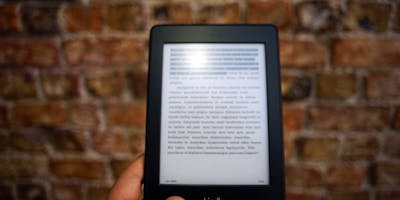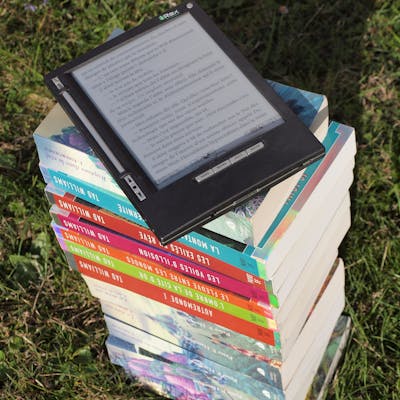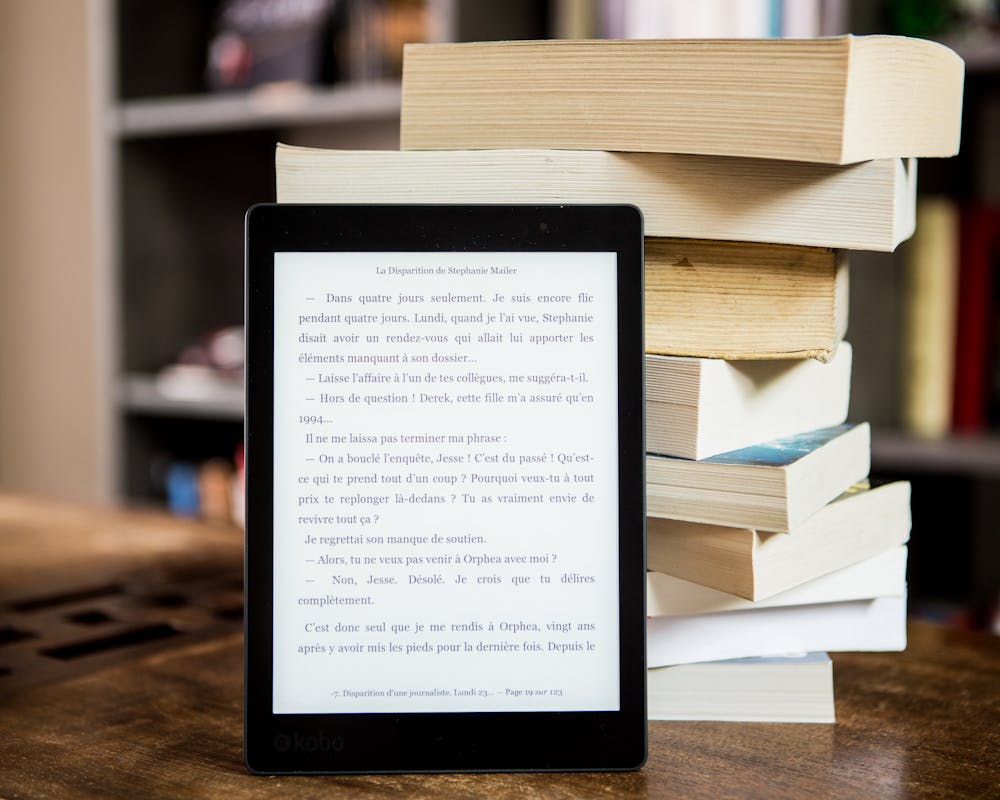Ebooks vs. print. The smell of a new book vs. built-in dictionaries. Cracking the binding vs. scrolling far as you can.
Kids today have a dilemma that most of us who grew up with print books don’t understand. What we’ve learned these last couple of decades is that digital books and print books both have their own advantages and disadvantages, but which one is best for your kid?
In this article, we go over the pros and cons of each, explaining when print books are the best option, and when ebooks are the right choice.
When Print Is Better

Retaining information. Pulitzer Prize-winning writer Nicholas Carr posits that the human brain behaves differently when we read books online vs. offline. “When we go online, we enter an environment that promotes cursory reading, hurried and distracted thinking, and superficial learning.” His research shows that memory retention and comprehension are better offline with print books.
Avoiding distractions. Most tablets and ebook readers come with distractions, where online games and social media are just a click away. Even offline e-readers still have advertisements or storefronts that bored readers can escape to in a pinch. If your child has trouble focusing, a print book offers less distractions.
Child has visual health problems. Computer Vision Syndrome is real, and with symptoms like headaches, blurred vision, and dehydrated eyes, it’s not pretty. If your child is susceptible to vision troubles, a traditional ink-on-paper book is “easier on the eyes.”
When Ebooks Are Better

Child reads a lot. Want to encourage your child to read as much as possible? Ebooks can be purchased and consumed more frequently and more conveniently than print books, and are often be cheaper if you disregard the price of the actual device. Children can download a fresh book in minutes or read books online, not to mention they can store their library of hundreds of titles digitally. Try lugging around a library of print books everywhere you go.
Extra features needed. Technology is all about the extra perks, and ebooks are no different. Tablets and e-readers offer bonus features that make reading easier, faster, and more fulfilling. Such technology is the latest advancement in the grand evolution of children's stories. Consider ebooks if your child has a strong need for:
- a search function
- a built-in dictionary
- backlighting (if they often read in the dark)
- interactive elements
- complementary material (diagrams, charts, video explanations, etc.)
Moreover, if your child has a reading disorder like dyslexia, ebooks are more likely to support special fonts and reading aids. Some ebook readers have font customization options, something print books could never match.
Sharing ebooks with other kids. “Everyone else is doing it” may not be the best justification for something, but in the case of ebooks, it does present a tempting advantage. It’s easier to share ebooks than physical books, as long as both parties have the capability. If your child’s friends all read ebooks, it may be worth it to set your kid up with an e-reader so they can borrow and lend books with one another.
Conclusion: Why Not Both?

Ebooks and print books have their own distinct strengths and weaknesses, but both together form the most complete reading experience. Prevailing theories suggest starting kids off with print books and weaning them onto ebooks as they get older. If digital reading devices are too costly, you can always access ebooks online.
In the debate between ebooks vs. print books, the important thing is that you’re teaching kids reading. Children stories actively shape a kid’s worldview, so whether they read books online or off, they’re still learning crucial life skills. Consider the minor discrepancies above, but don’t stress too much about which one is best because they’re both great!
